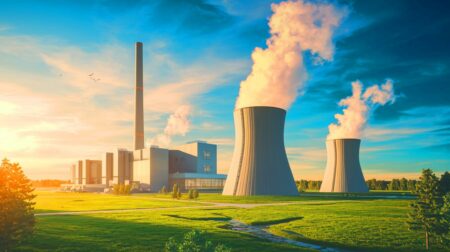All eyes are on Glasgow when it comes to Africa’s climate transition, as COP26 delegates in Scotland call for support in Global South nations that already feel the effects of fossil fuel-driven climate change, despite the fact that they’ve contributed so little to the problem. At the same time, maybe those eyes should be on Cape Town.
That’s where African Energy Week began on Tuesday and will continue through Friday. And it’s there that African government leaders, meeting with top representatives of the oil and gas industry, are defending the use of fossil fuels and its critical role in African economies.
Nigeria, Angola, Equatorial Guinea: All are dependent on fossil fuel revenues. Seven of the 13 member states of the Organization of the Petroleum Exporting Countries (OPEC) are on the African continent. Nigeria’s oil and gas sector accounts for about 10% of gross domestic product, with petroleum accounting for almost all of its total exports revenue.
Even temporary market downturns disrupt these oft-fragile economies and their people. That’s not to mention the resource-related corruption, conflict and other challenges in countries like Mozambique, with its embattled liquid natural gas initiatives, or war-torn South Sudan, with the third-largest oil reserves in sub-Saharan Africa.
So it’s no wonder that African stakeholders in the fossil fuel economy are insisting that they need these energy resources to advance their development, just as India or China does. Nor is the African argument for fossil fuels driven entirely by Total and other foreign oil majors with interests in African nations.
“The reality is that Nigeria and Africa need more investment in the oil and gas space,” said Kola Karim, CEO of Shoreline Energy International in Nigeria, during a panel session. “The transition is good because you will invest in more renewables but in order to industrialize we need to invest in oil and gas.”
Meanwhile, the host of the African energy industry’s annual event came under fire for keeping coal in its mix. South Africa’s struggling Eskom, the state-owned and largely coal-fired energy provider, can barely keep the lights on as it is. And South Africa is one of the nations, including the United States, that did not commit to a pledge at COP26 to end coal power by 2040 at the latest.
“What will happen is that the country will end up with stranded assets,” said Barbara Creecy, the South African environment minister, in explaining that decision. “And we know that in any transition there are winners and losers. The losers are seldom owners, it’s normally the workers and the communities.”
Energy minister Gwede Mantashe, above, defended the continued use of coal just after delivering a keynote address at African Energy Week. He also supported South Africa’s turn toward natural gas as part of the energy mix to support the country’s climate transition, a key industry focus in Cape Town.
What most of the African industry leaders point to is the obvious: There are still 600 million people on the continent who have no access to power at all. They need energy to fuel development and meet the challenges of the climate crisis.
Renewables are on the rise, and recent research notes that most of the existing energy supply in sub-Saharan Africa comes from renewable sources. But the same University of the Witwatersrand study notes that countries like Algeria, Nigeria and South Africa depend heavily on coal, oil and gas.
There are no easy answers when it comes to Africa’s energy transition. For every Elizabeth Wathuti, the Kenyan activist making an emotional climate plea at COP26, there is a Congolese oil minister or a multinational oil firm with interests in Namibia’s offshore rights. They’re anxiously watching fossil fuel investment dry up and, like the rest of the world, wondering what will take its place and how to safely get there.
Did you like it? 4.6/5 (23)








